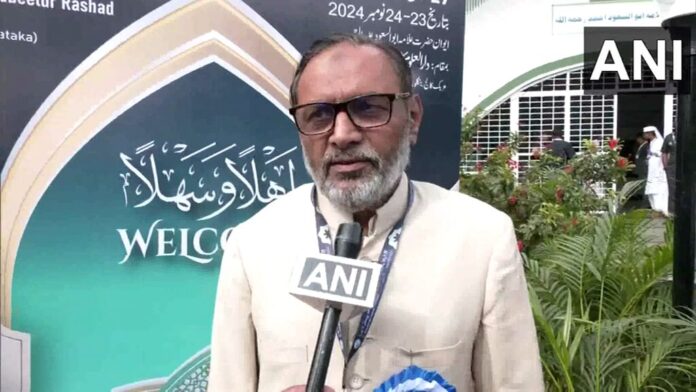Bengaluru (Karnataka) [India]: The All India Muslim Personal Law Board (AIMPLB) has strongly criticised the Waqf (Amendment) Bill, calling it “anti-democratic” and “anti-constitutional.”
During its two-day conference, which began on Sunday in Bengaluru, the AIMPLB discussed various issues, including the controversial Waqf (Amendment) Bill and the Uniform Civil Code (UCC).
“It is a normal conference and every three years we elect our new team. This time we also elected a new president, general secretary, secretary, treasury, and spokesperson. In the conference, we also discuss the various issues confronting our community. We discussed the Waqf (Amendment) Bill, 2024 and why we oppose it and what we will do further. We also discussed the Uniform Civil Code which has already been enacted in Uttarakhand. We have decided to challenge the act in the high court,” Syed Qasim Rasool Ilyas, spokesperson of the AIMPLB told media.
In addition, Rasool Ilyas expressed concern over the alleged hate speeches in the country and said that various leaders are making disturbing statements against Prophet Mohammad, stressing that such remarks are not acceptable to any Muslim worldwide.
“Every day a new dispute starts in the (name) Mosque and then the court orders a survey. If the Worship Places Act is there it has to be implemented…Hate speeches are also going on in the country and various leaders are making disturbing statements against Prophet Muhammad which is not acceptable to any Muslim throughout the world,” Rasool Ilyas added.
Answering a query about the Waqf (Amendment) Bill which is likely to be brought up for discussions in the Winter session of the Parliament, scheduled to start on November 25, he said, “We will take all legal, constitutional provisions available against the Waqf (Amendment) Bill, 2024… Today they are attacking Waqf, UCC, tomorrow they can attack Gurdwara Parbandhak Committee, the Hindu Endowment Act… Waqf (Amendment) Bill, 2024 is anti-democratic, anti-constitutional, illogical,” he said.
The Waqf (Amendment) Bill, 2024 seeks to bring sweeping reforms, introducing digitisation, stricter audits, transparency and legal mechanisms to reclaim illegally occupied properties. The Joint Parliamentary Committee (JPC) is holding a series of meetings to gather input from government officials, legal experts, Waqf Board members and community representatives from different states and Union Territories, aiming for the most comprehensive reform possible.


